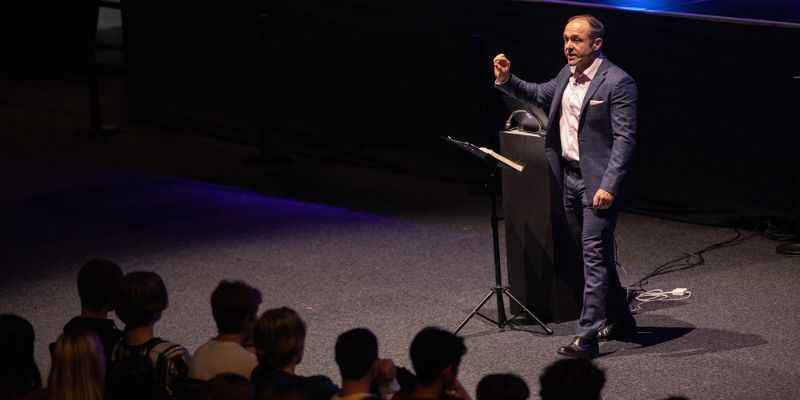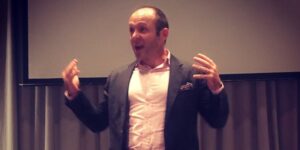Welcome to the Catholic Teacher Daily Podcast, where we delve into the challenges and joys of the Catholic educational journey. In today’s episode, we navigate the profound issue of Catholic teacher burnout, exploring how to rediscover purpose amidst the daily trials. Join us as we uncover the wisdom of Sister Mary David and delve into the liberating concept of abandonment to God in the concrete circumstances of our vocational lives. Stay tuned as we embark on a journey of trust, commitment, and finding God’s guidance amidst the challenges of Catholic education.
Welcoming Catholic Educators

Hey there, everybody! Jonathan Doyle is with you once again. You are very welcome here at the Catholic Teacher Daily Podcast. This is going out to Catholic teachers, principals, leaders, bishops, male and female religious, and all people of goodwill around the world.
It’s always fun to look at those heat maps and see the statistics on these podcasts. You can see all the different Catholic educators from Catholic schools all around the world listening in each day. So it is my great pleasure to be with you all, because I just really admire what you do.
The reason I’ve done this for so long is because I have this one single desire, which is to encourage you. Because it’s a challenging and demanding vocation. And I think you deserve to be encouraged and reminded on a daily basis. God sees everything you do, and it does matter. And then it does make a difference. What an incredible thing it is that you do.
The Impactful Role of Catholic Educators: Shaping Spirits and Building Virtue
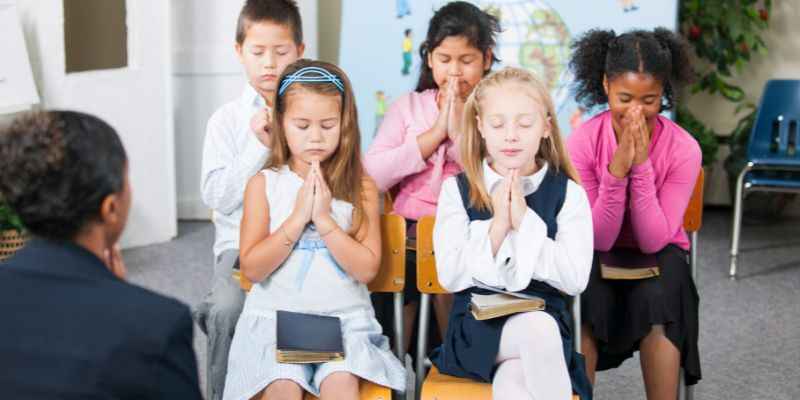
Remember one of the church documents saying that you are not writing on inanimate material but on the very spirits of human persons. You’re writing a story, you’re shaping character, and you’re helping children develop virtue and learn more about the love that the heavenly father has for them.
Could you do anything better with your life? I think at the end of your life, you will be shown. I keep saying this to teachers: when I do live events, you will be shown everything that you did that helped a young person encounter Christ more deeply, in big ways and in small ways.
Housekeeping, as always, please make sure you’ve subscribed. If you’re not a subscriber, hit the subscribe button wherever you’re seeing or hearing this. And leaving a review would be great.
Everything you need to know about me is on my website, jonathandoyle.co. If you’re on Instagram, I’m at @jdoylespeaks. You can see me there every single day, trying to put some encouragement out there. If you are interested in booking me to speak, to work with your staff. Please go and check out jonathandoyle.co.
Unveiling 'The Joy of God': A Journey with a Catholic Educator's Wisdom

Today, friends, we continue our journey with the beautiful writings of Sister Mary David. She was living on the Isle of Wight, in a monastery there and just wrote this incredibly beautiful book called “The Joy of God.” I can’t even remember now how I found it, but I often say that this is really how the Holy Spirit works. If you’re anything like me, when you pray, your preference would be that God literally speaks or sends you an email, like you’ve got a complex problem you are praying about.
It would be great if God just said, Jonathan, on Tuesday at 3:56. Turn left on this street, and you will meet her. He did that when he told the disciples to go and get the donkey. In the cult before the passion, Jesus could see things in advance. It’d be good. Wouldn’t it? Think of all the challenges that we face. It would be great to have that kind of direct communication at times.
I’m not limiting; God can definitely do that. But importantly, I think the way the Holy Spirit works is by prompting ideas. And can I be really honest with you? I think part of what happens in the Christian life is as we seek to grow in virtue, as we read the temptation and the allure of sin and try to conform ourselves more fully to the life of Christ. I think what happens is that the Holy Spirit just gets more of an invitation.
So if we’re bound up in sin, exhaustion, and all sorts of other things, it’s harder, I think, for God to break through. We’re closed off. So one of the great things about the spiritual life is that as we try to grow in our limited weakness and imperfection, the spirit has more of a chance of reaching into our lives. So that is just my way of saying that’s how this book came across my path.
Let me clarify, not because I’m super holy. But simply because, as I’ve tried to make space for God, the Holy Spirit just occasionally gives me these little insights. So that’s how I found this beautiful book.
Understanding Challenges in Vocation: Catholic Educator's Wisdom on Abandonment

Listen, here’s what I want to share with you today. There’s a great quote from Sister Mary David here. Where she says these words, she’s a Benedictine, which will give you some context. She says,
“St. Benedict suggests that unless there is abandonment to God in a concrete situation, in a particular environment, then God will not be found.”
Sister Mary David Tweet
Why I want to talk to you about this is because I don’t know if you do this. I think a lot of human beings are always trying to be somewhere else. We live in such an aspirational culture. There’s so much presented to us—so much glamour, so many things we could desire. We often want to be somewhere else, especially when it comes to suffering and difficulty.
I’ve just subscribed to this fascinating Catholic literary journal called “The Lamp.” If you’re a bit of a Catholic nerd like me, you like to read these sorts of things, and there was a fascinating long essay yesterday about drug addiction. And he was talking about the vast amount of medication taking place in our culture. Do you know drug use is off the scale?
Like, many of us wouldn’t see it. We don’t encounter it, and then, when I read the article, I was thinking that I don’t tend to meet huge numbers of people who are really heavy drug users. Maybe I need to get out more. The point is that there’s just this sense that he was saying that so many people are trying to avoid suffering. And a huge part of the drug stuff is that people are experiencing spiritual, emotional, physical, and relational suffering. So they need to try and get out of that suffering. Which leads me to the idea that we’re often trying to be somewhere else.
Finding God in Concrete Circumstances: Embracing Stability in Catholic Education
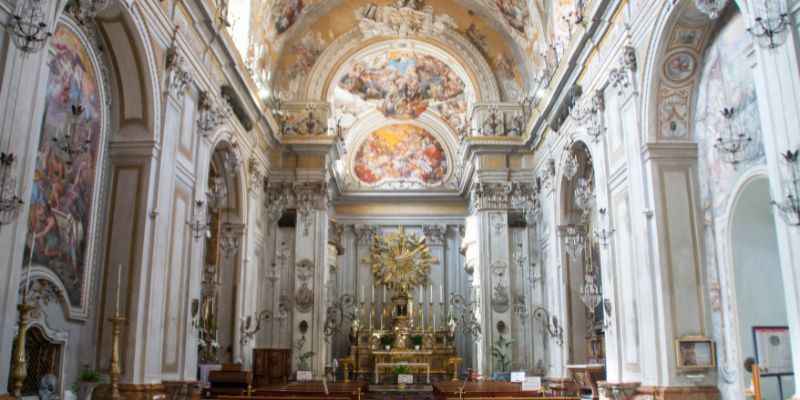
I have had the privilege of working with literally hundreds of thousands of Catholic teachers around the world. One of the common things for many people is the burnout, the exhaustion, the difficulty, and the hardship, and it seems to be getting harder. Doesn’t it? It seems to be getting more complex and demanding. What do we do, right? The first thing I want to say is that we don’t use this conversation that you and I are having as any kind of basis for accepting poor treatment or bullying in the workplace, etc.
I’m curious about whether we could have a discussion about what if God, in the difficult circumstances of our vocational life, is affording us an invitation to find him more deeply. So I’ve been teaching this in seminars for quite a while because a lot of stuff that we talk about in terms of vocation and Catholic education can be quite abstract. So I try to make it really concrete, which means that it is in the real circumstances of your daily Catholic educational and vocational life that God may be found.
Listen to this again; she says that St. Benedict suggests that unless there is abandonment of God in a concrete situation in a particular environment, then God will not be found. She talks about the Benedictine rule of stability. When St. Benedict established his monasteries, there was this sense that he wanted people to be rooted in a place and in a community, to stop people from endlessly wandering.
It even goes back as far as Saint Irenaeus, who is dealing with the Gnostics, because the Gnostics kind of believe that the purpose was this endless quest, this quest for knowledge, that was eternal and never ended. Whereas Irenaeus, people, and Benedict are saying, No, a good God can be found, but we need to be still. We need to be stable; we need to be in a community. We need to be somewhere stable.
The Invitation to Abandonment: A Bold Perspective on Facing Hardships
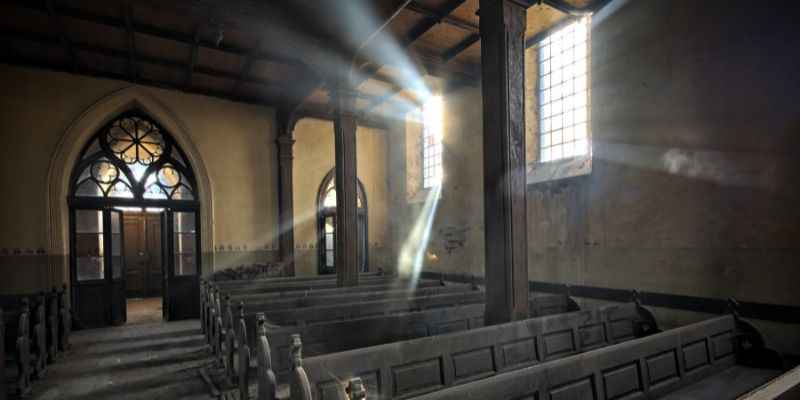
Let me try to summarize all this. What I’m thinking is, what if the difficulties of your work—the difficult people, the difficult students, the difficult colleagues, the difficult parents, maybe. An invitation to abandonment to God in your particular concrete context. And in the particular environment that you’re in now, we’ve got to be spiritually mature here. Because I’m not saying we just enjoy toxicity. But I wonder if there’s a culture where I can be really bold.
We’re so sensitized to flee from hardship that we’ve probably all imbibed this idea that if it’s difficult or hard, it must be wrong. I’ve come to this very late, and I’ve said this several times over the last few days: in my experience, I’ve got three teenage kids and an extremely complex and busy life. And I can promise you, I’ll be really honest. I can promise you, there are times when I’m like, I just want to be in a library on my own, reading books, or on the beach. I want to run away. I’m not going to run away, but I’d like to sometimes. If you’ve experienced that, then you know that this is hard wherever you are.
Trusting God's Guidance: Embracing a Grounded Sense of Catholic Vocation

What I’m coming to is this more grounded sense of God. If you have placed me here, this is the vocation you’ve called me into. Then you must be able to provide for me, and not only provide for me, but help me grow. Because all I can really end up with is dependence on Christ in the very concrete circumstances of my day-to-day vocational life.
So let’s talk about you as we finish. I believe that there’s a very real possibility that this is what’s happening for you. Think about that most difficult student; think about the hardships that you face in your Catholic education, vocation, and your Catholic educational leadership, vision, mission, and Catholic identity—all these things that make up our vocational life.
What if all of this was an invitation? St. Benedict says, abandonment to God in your concrete situation, in your particular environment. And if you begin to follow that path of abandonment, the final line here says that God will be found. The great news is that if you follow this path, if you do this, the great news is that if God wants you to be somewhere else, then that’s going to happen.
It’s such a peace that comes when we realize that we’re not in control of the cosmos, that we don’t see every end and purpose, and that we don’t get to know the future. You have to be faithful in the moment and then know that God will gently move and direct us. That requires trust. The only reason I am talking to you about this because I wrestled with it. Because it’s hard for me, but I sense the truth in it. Since that could be a certain liberation for all of us if we got more committed to where we actually are and stopped wanting to be somewhere else.
Services for Catholic Education and Beyond
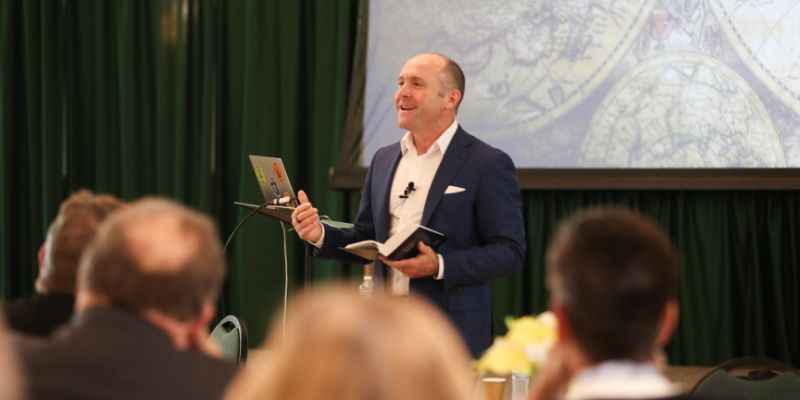
All right, my friend, please make sure you’re subscribed. Instagram: @jdoylespeaks. And what do I actually do? How could I be useful to you? Of course, I do huge global keynotes for Catholic education—10,000 people or more. But I do staff professional development stuff. I do consulting work. We built seminars just for your exact needs and those of your school or diocese. So if I could be useful to you as a speaker or as an encourager at live events, please go and check out Jonathan Doyle’s website, where you can find me.
God bless you, my friend. My name is Jonathan Doyle, and this is the Catholic Teacher Daily Podcast. You and I are going to talk again tomorrow.
